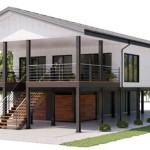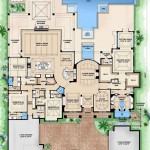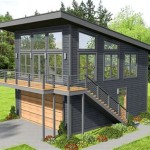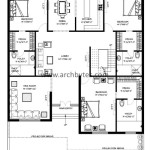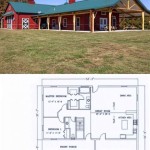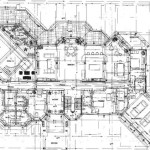How To Make a 2D Floor Plan 3D in AutoCAD
AutoCAD is a powerful computer-aided design (CAD) software used extensively in architecture, engineering, and construction. While initially focused on 2D drafting, AutoCAD's capabilities have expanded to include robust 3D modeling features. Transforming a 2D floor plan into a 3D model allows for a better understanding of spatial relationships, improved visualization, and enhanced communication between stakeholders. This article details the process of converting a 2D floor plan into a 3D model within AutoCAD.
The process requires a foundational understanding of AutoCAD's interface, commands, and coordinate systems. Familiarity with basic 2D drafting techniques is crucial, as the 2D floor plan serves as the base for the 3D model. Furthermore, understanding 3D modeling principles such as extrusion, elevation, and solid editing will greatly facilitate the conversion. The overall workflow involves preparing the 2D drawing, setting up the 3D environment, creating the walls and structural elements, adding doors and windows, and finally, refining the model with details and materials.
Preparing the 2D Floor Plan
Before initiating the 3D conversion, it is imperative to ensure the 2D floor plan is clean, accurate, and well-organized. This preliminary step lays the groundwork for a smoother and more efficient 3D modeling process. The initial step is to examine the existing 2D floor plan for any errors or inconsistencies. Verify that lines are properly connected, that overlaps and gaps are eliminated, and that all elements are drawn to the correct scale. Any discrepancies at this stage will compound during the 3D modeling, leading to inaccuracies and rework.
Next, organize the drawing using layers. Layers are an essential tool in AutoCAD for managing and controlling the visibility and properties of different objects. Create separate layers for walls, doors, windows, furniture, and any other distinct elements. This separation simplifies the process of selecting and manipulating specific components during the 3D modeling phase. Use descriptive names for the layers (e.g., "Walls," "Doors," "Windows") to maintain clarity and ease of navigation. Color-coding layers can further enhance visual organization.
Once the drawing is organized with layers, it might be necessary to join individual line segments that represent walls or other continuous elements. The "JOIN" command in AutoCAD combines multiple connected lines, arcs, and polylines into a single polyline object. This simplifies the extrusion process in 3D modeling, as a single object can be extruded rather than multiple individual segments. Exploding objects that are unnecessarily grouped or blocked can also aid in streamlining the process.
Finally, save a copy of the original 2D floor plan before proceeding with the 3D conversion. This backup safeguards against accidental modifications or data loss during the modeling process. Saving the 2D plan as a separate file allows for easy reference and restoration if needed.
Setting up the 3D Environment
After preparing the 2D floor plan, the next stage involves configuring the AutoCAD environment for 3D modeling. This includes adjusting the workspace, setting the viewpoint, and configuring the visual style. First, switch to a 3D workspace. AutoCAD offers several pre-defined workspaces tailored to specific tasks. Select the "3D Modeling" workspace from the workspace switching dropdown located in the status bar. This workspace provides access to the tools and palettes most frequently used in 3D modeling, such as solid modeling, surface modeling, and visualization tools.
Adjust the viewpoint to an isometric or perspective view. The default top view is not optimal for 3D modeling, as it provides a two-dimensional representation. Use the "ViewCube," located in the upper-right corner of the drawing window, to rotate the view to an isometric or perspective angle. Alternatively, the "3DORBIT" command allows for free rotation of the view. Experiment with different viewpoints to find an angle that provides a clear and comprehensive view of the model.
Configure the visual style to one that renders the model in three dimensions. The "2D Wireframe" visual style, which is the default, displays objects as lines and curves. Switch to a visual style such as "Realistic," "Conceptual," or "Shaded" to enable the rendering of surfaces and solids. The "Realistic" visual style provides the most photorealistic representation, while "Conceptual" offers a more stylized look. The "Shaded" visual style is a balance between realism and performance. Use the "VISUALSTYLES" command or the Visual Styles control in the View tab of the ribbon to change the visual style.
Finally, ensure that the dynamic input is enabled. Dynamic input provides a command line interface near the cursor, allowing for direct input of values and options. This feature simplifies the modeling process by providing real-time feedback and reducing the need to constantly refer to the command line. Toggle dynamic input on or off using the "DYNMODE" system variable or by clicking the "DYN" button in the status bar.
Creating 3D Elements from the 2D Floor Plan
With the 2D floor plan prepared and the 3D environment configured, the core of the process involves creating the 3D elements that constitute the model. The primary element in a floor plan is typically the walls. To create 3D walls, the "EXTRUDE" command is commonly used. This command creates a 3D solid by extending a 2D object along a specified path. Select the polylines representing the walls, activate the "EXTRUDE" command, and specify the height of the walls. The wall height is a crucial parameter that determines the vertical dimension of the model; ensure its accuracy based on the building's specifications. A typical wall height is around 9-10 feet, but can vary based on design needs.
Once the walls are extruded, create openings for doors and windows. These openings can be created using the "SUBTRACT" command. First, create 3D solids that represent the door and window openings. Position these solids in the correct location on the walls, aligning them with the door and window locations in the 2D floor plan. Next, use the "SUBTRACT" command to subtract these solids from the wall solids. This will create corresponding openings in the walls, allowing for the insertion of 3D door and window models. Alternatively, the "PRESSPULL" command can achieve similar result. This command allows to create a 3D solid by selecting the area within the wall where you intend to create the opening and specifying the depth.
Add 3D models of doors and windows to the openings. AutoCAD provides a library of pre-built 3D models, or you can create custom models using solid modeling techniques. Insert the door and window models into the openings, ensuring they are properly aligned and scaled. Use the "MOVE" and "ROTATE" commands to position and orient the doors and windows correctly. Consider using dynamic blocks for doors and windows. Dynamic blocks allow modifications to the size and swing direction of the door or window, greatly improving the efficiency of edits down the line.
Finally, create other structural elements such as floors, roofs, and columns. The same techniques used for creating walls can be applied to these elements. Extrude 2D polylines representing the floor and roof outlines to create 3D solids. Create columns using the "CYLINDER" or "EXTRUDE" command. For more complex roof shapes, surface modeling tools may be required. Ensure all structural elements are properly aligned and connected to create a cohesive and structurally sound 3D model.

Autocad 2d To 3d House Modeling Simple Floor Plan 2024

Autocad Civil Simple 2d Floor Plan To 3d House

Floor Plan Create 2d 3d Plans Autodesk

Autocad 2d Plans And 3d House Modeling Tutorials

Autocad Civil Simple 2d Floor Plan To 3d House

How To Make 3d Of 2d Floor Plan 30 X 45 In Autocad 2024

Autocad 2d Basics Tutorial To Draw A Simple Floor Plan Fast And Efective Part 1
What Platform Can I Use To Convert Clients 2d Floor Plans 3d Quora

Import 2d Plans Into 3d The Right Way Arch Viz Champ

Design 2d Floor Plan 3d Using Autocad Sketchup By Vbuildcon Fiverr
Related Posts

